The Capuchinos de Taboga project examines all aspects of capuchin behavior, with a focus on social behavior, cognition, communication, health & conservation, and hormone-behavior relationships. Like humans, capuchin monkeys are highly gregarious and possess remarkably large brains, positioning them as an ideal comparative species for investigating the relationship between social behavior and complex cognition. Our research team tackles a variety of questions aimed at understanding the behavior and cognitive abilities of white-faced capuchin monkeys. We currently study 4 groups of capuchin monkeys which are under near-daily observation from our research team. We collect demographic information, conduct behavioral observations, record group movement, collect phenology and feeding data, examine hormonal profiles, record vocalizations, and conduct a variety of field-friendly cognitive experiments.
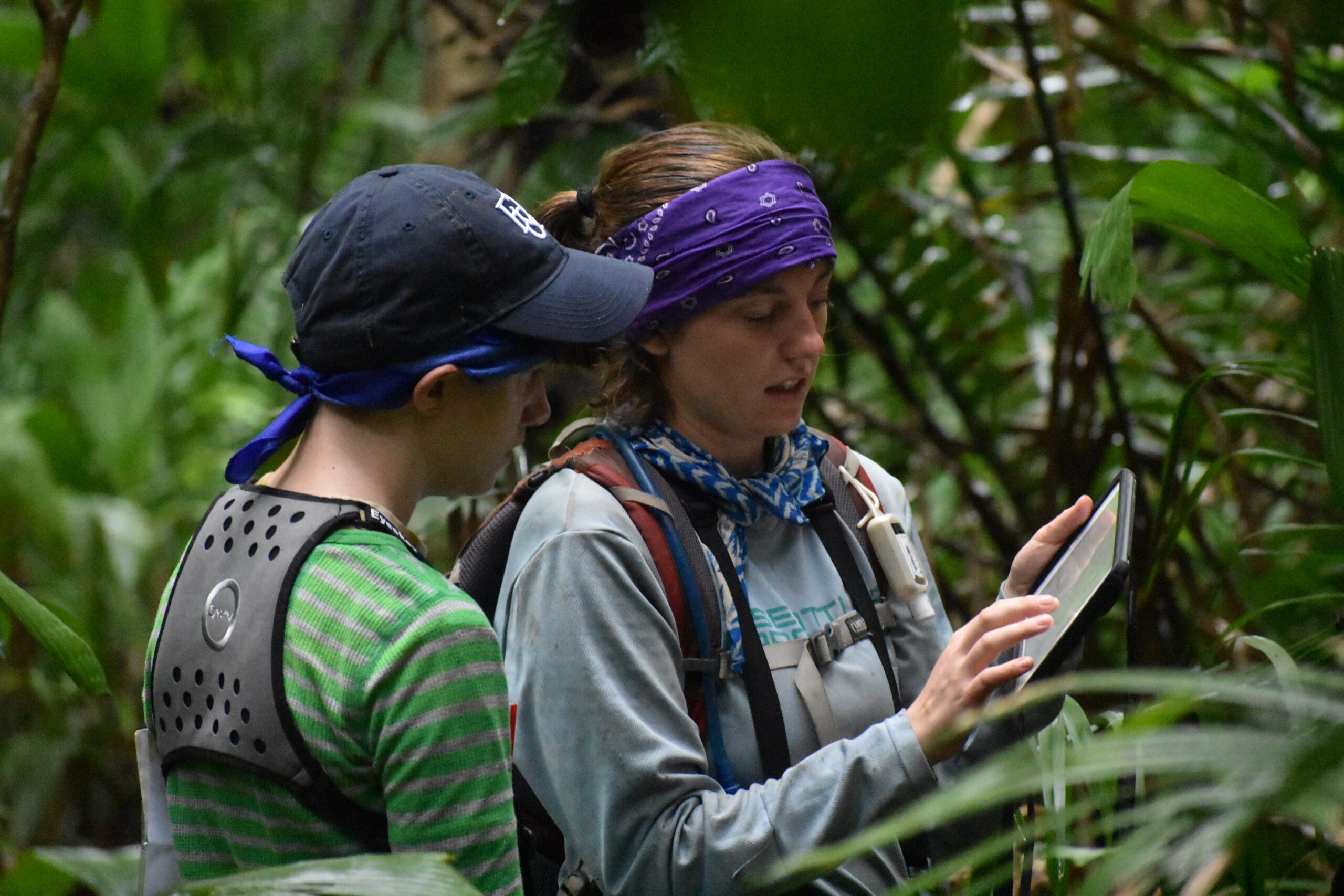
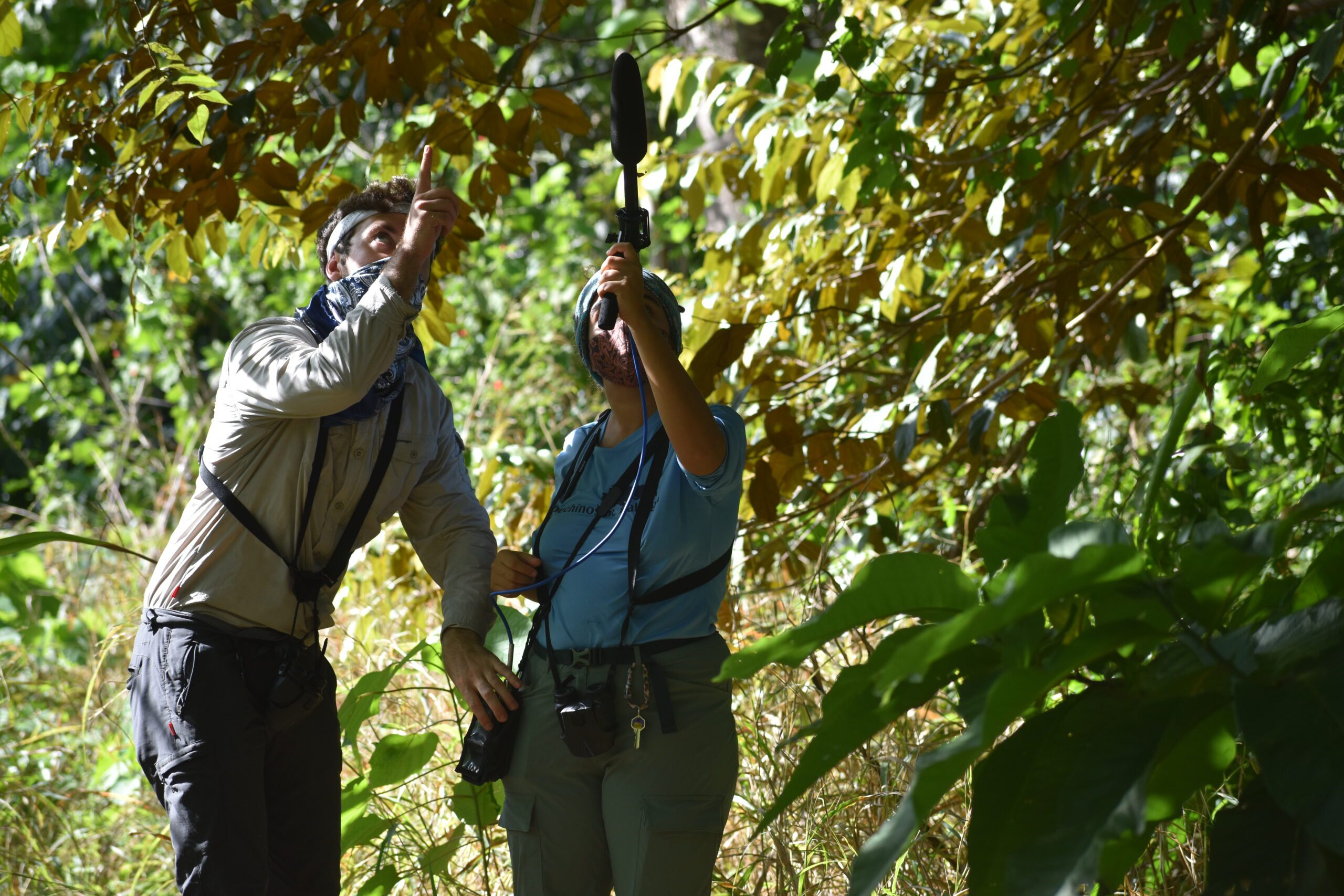
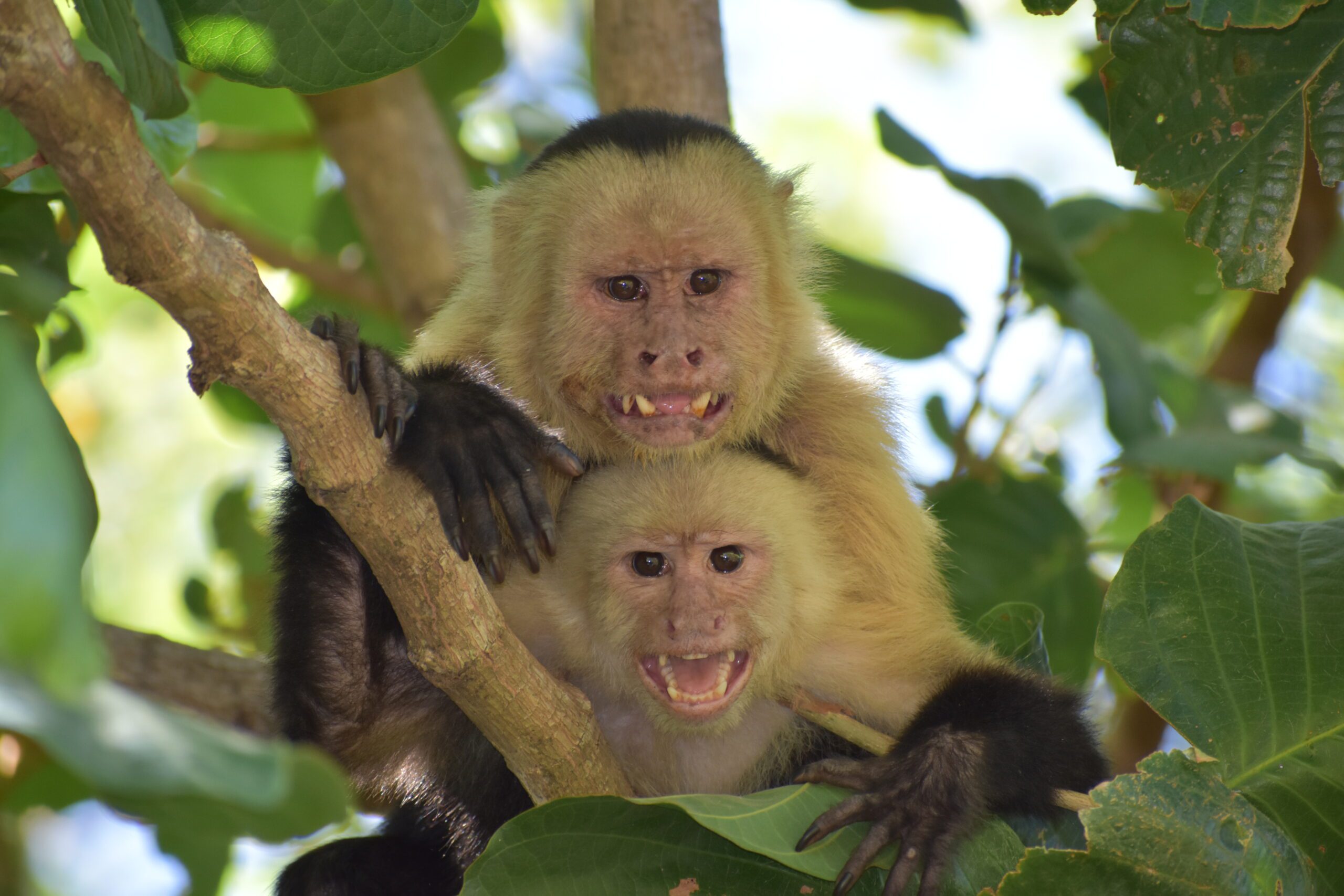
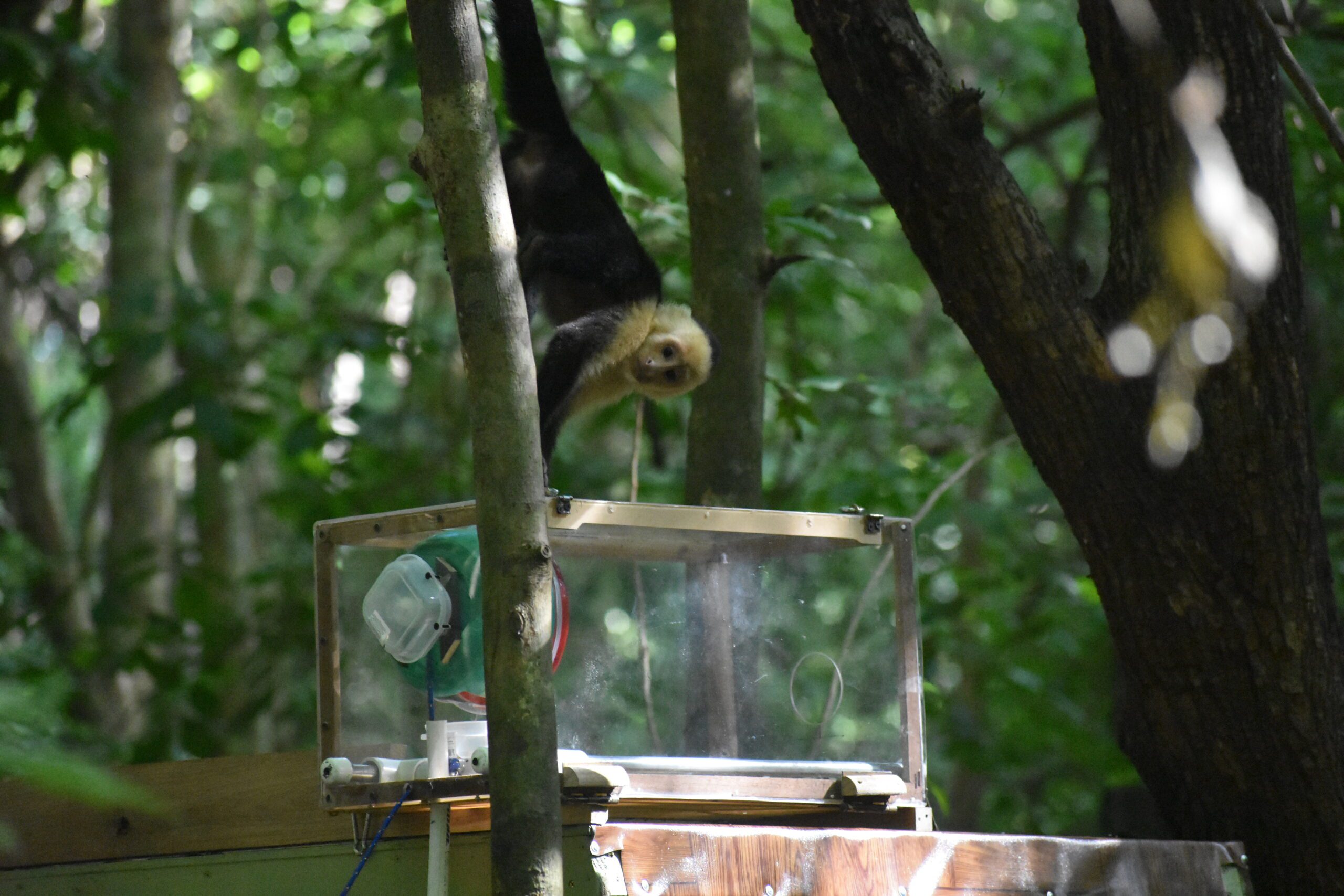
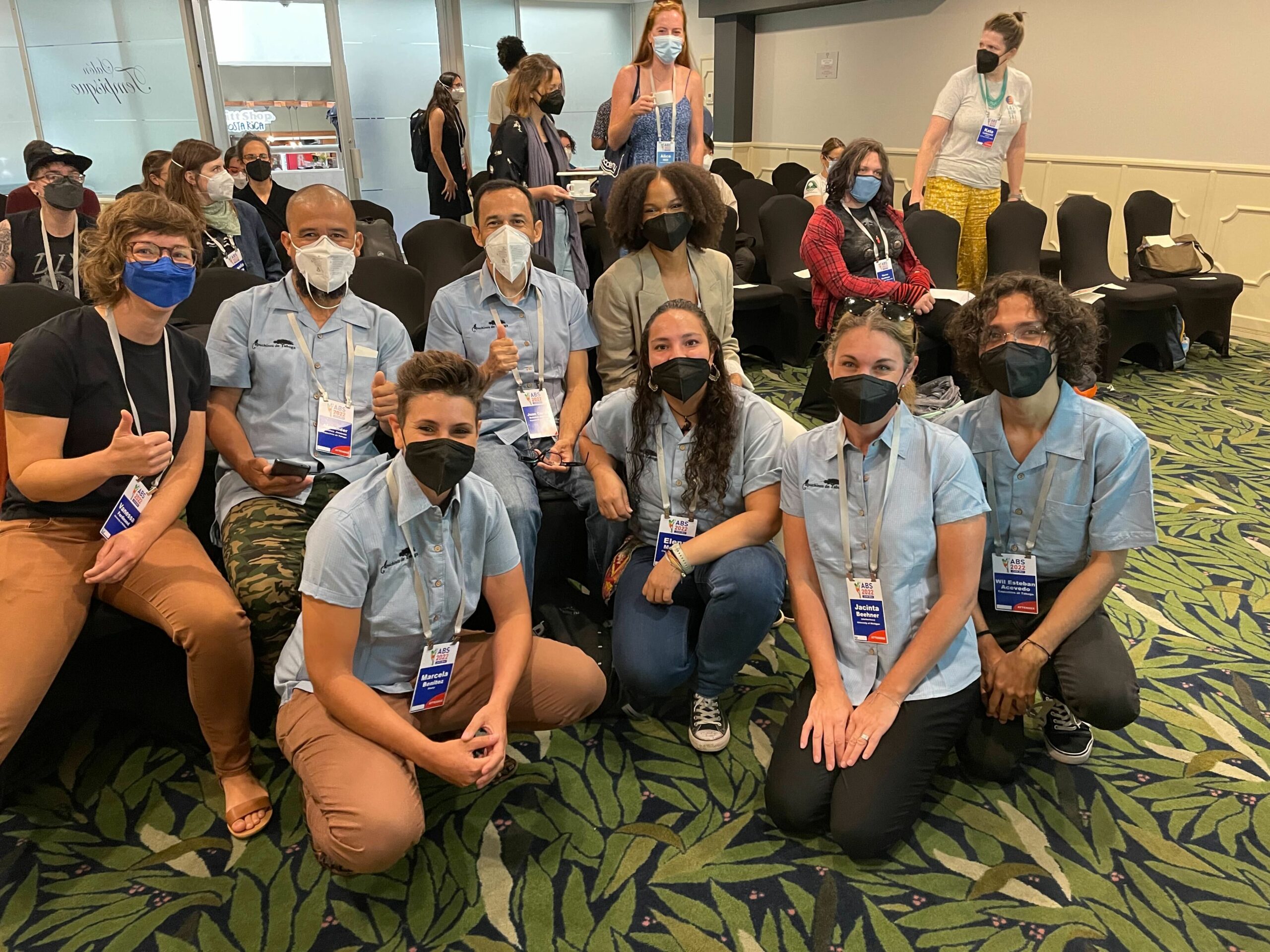
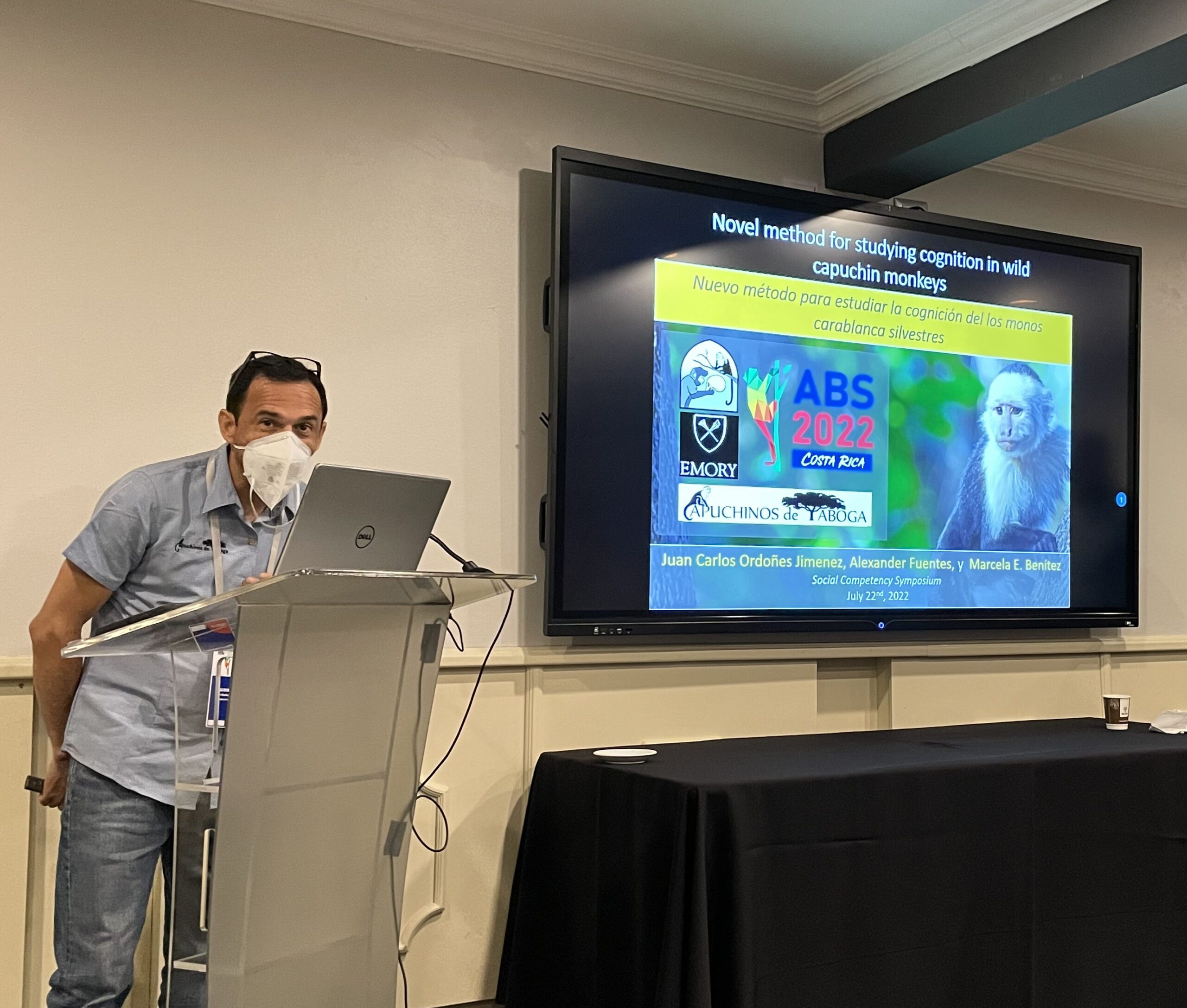
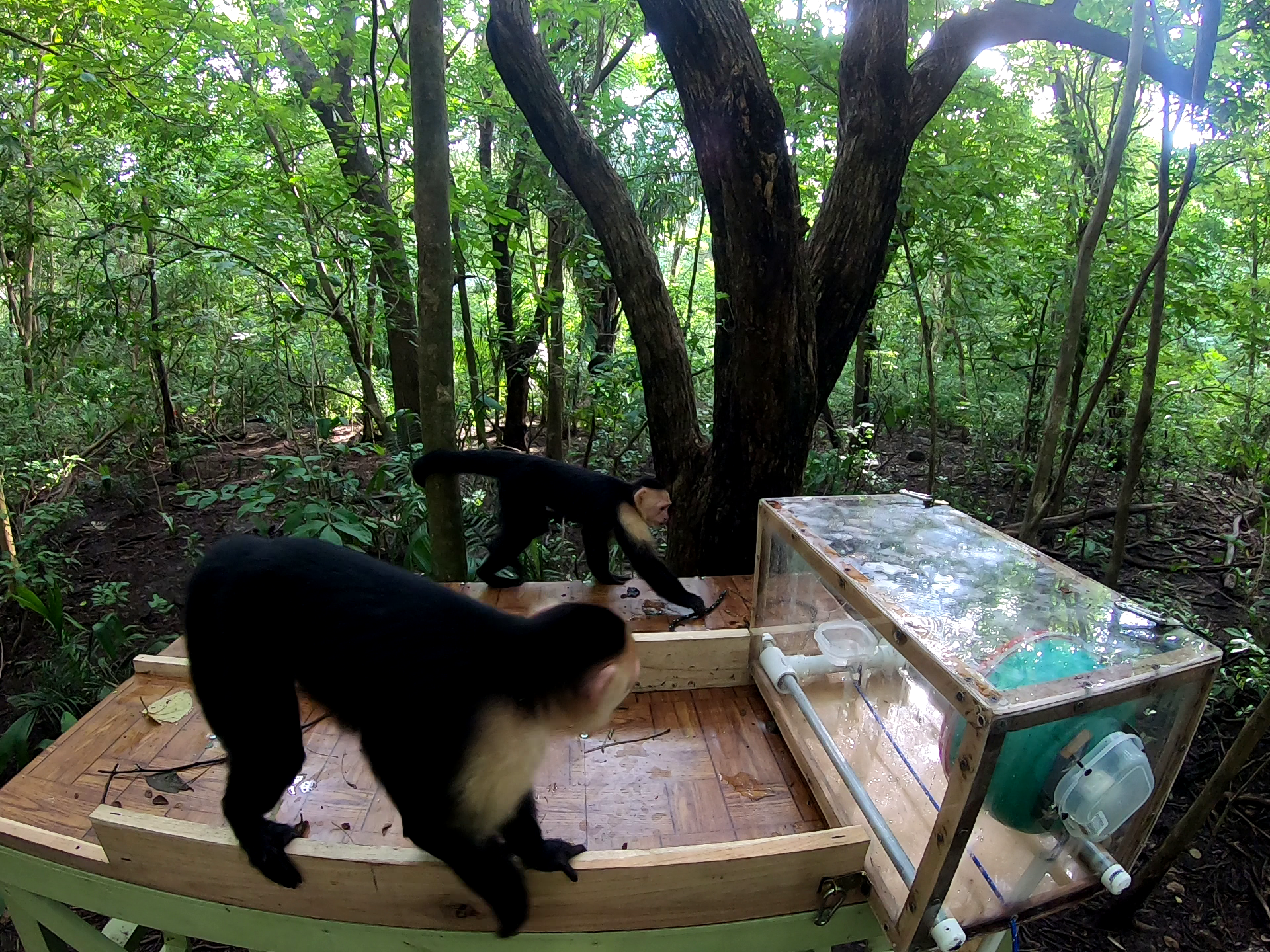
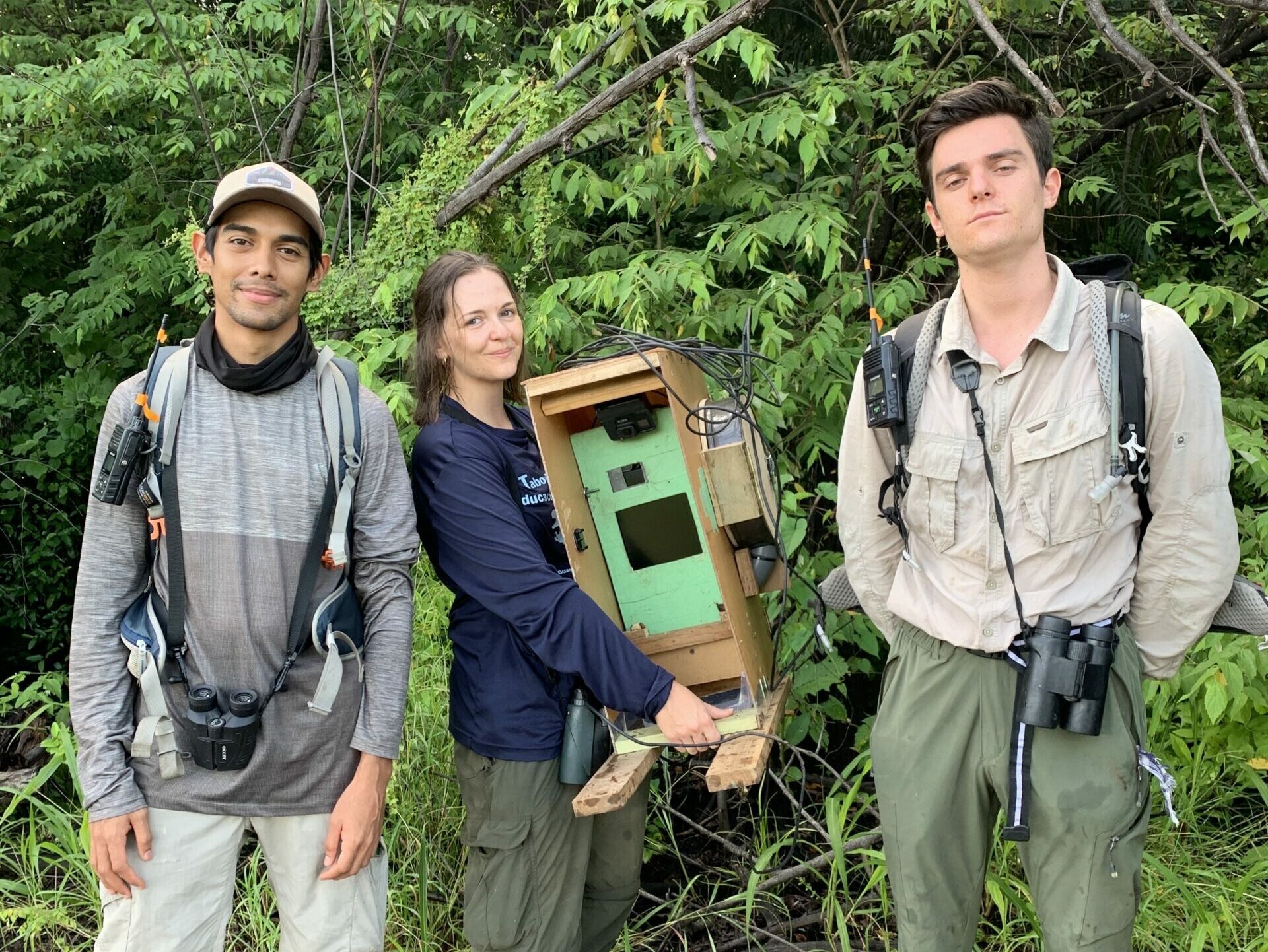
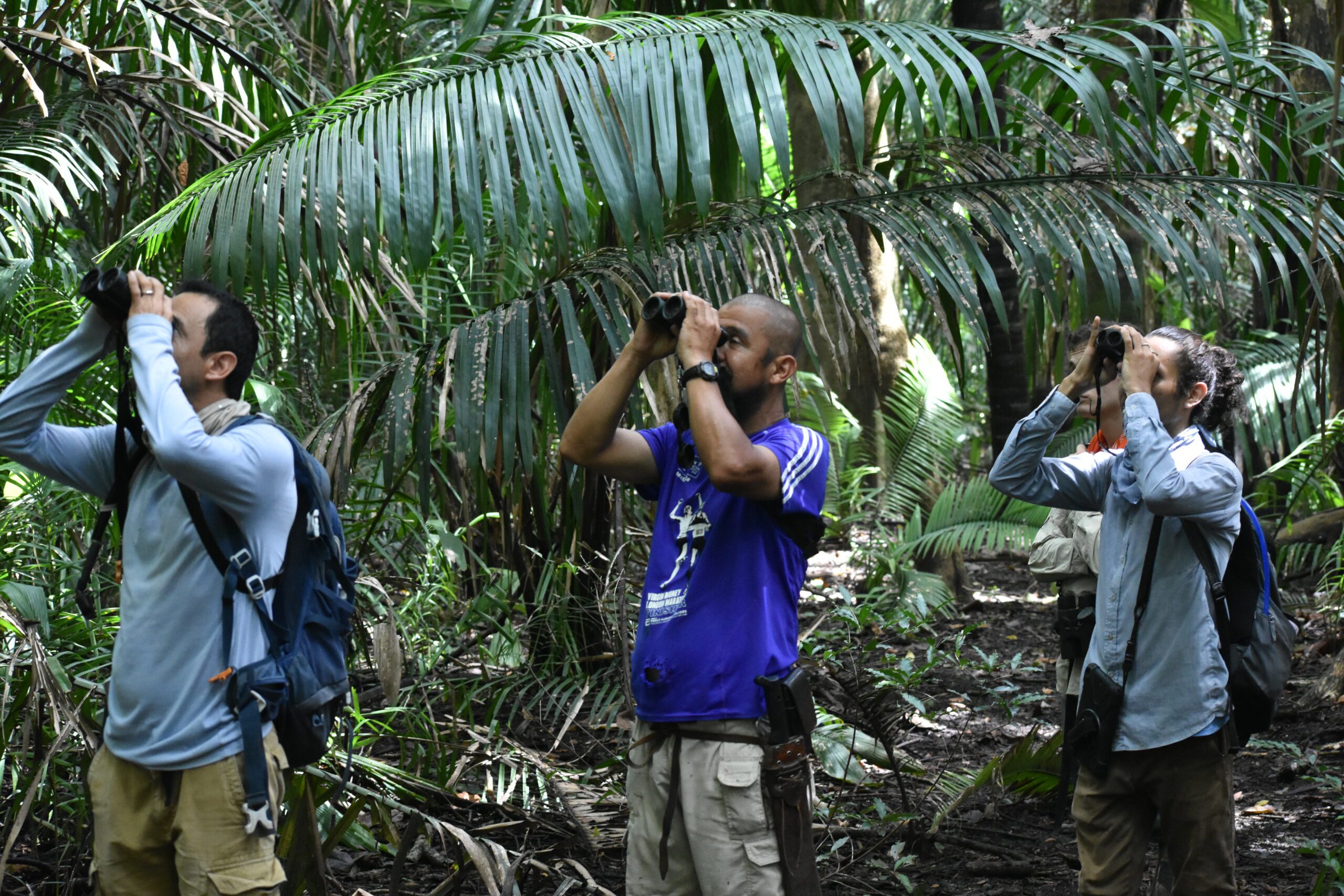

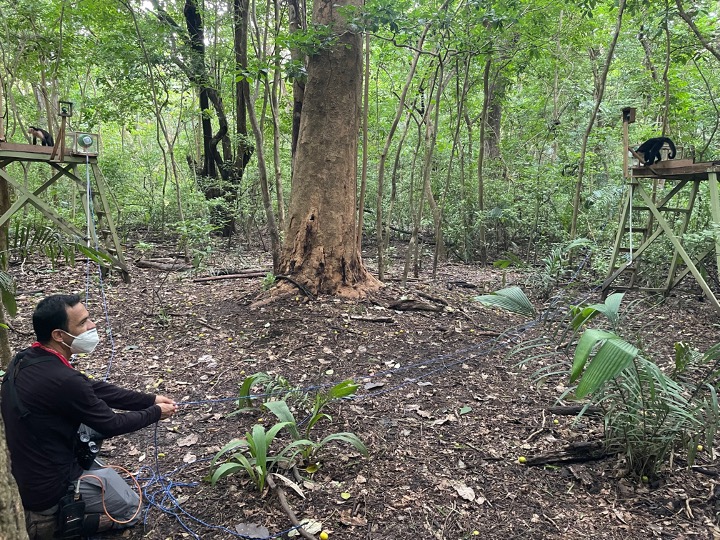
As an international collaboration between the University of Michigan (UM), Emory University (EU), the Universidad Téchnica Nacional (UTN) in Costa Rica, and the Sistema Nacional de Areas de Conservacion (SINAC), this project fosters an international network of scientific researchers and collaborative relationships between the U.S. and Costa Rica. Together, we aim to establish a one-of-a-kind, entirely sustainable, international field station, where we combine a diverse biological field site, featuring an on-site environmental endocrinology laboratory and training facility for Costa Rican students/employees and other personnel from the local community. This unique combination of both forest and laboratory, housed under a “sustainable roof”, managed primarily by Costa Rican nationals, offers an ideal setup for an international field school where training can be offered in each area (field, laboratory, conservation, and sustainability methods).